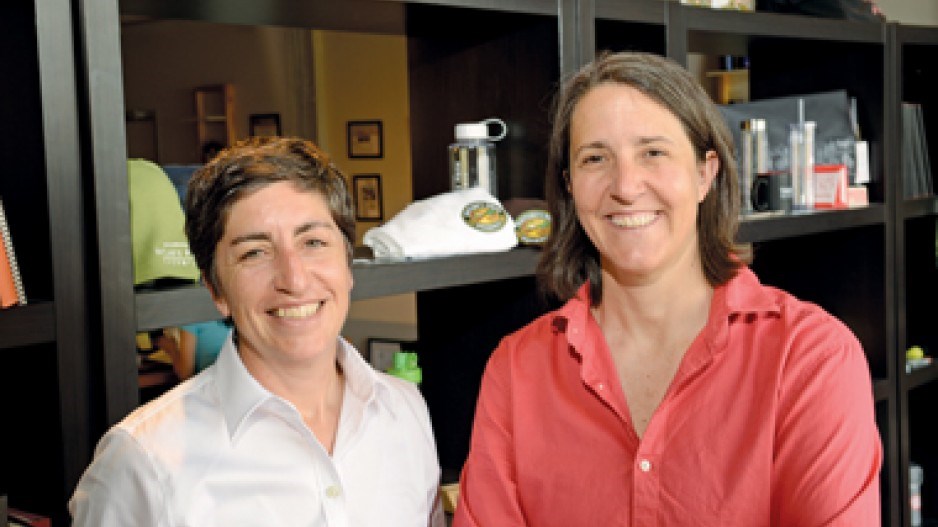Thirteen years ago, Denise Taschereau was director of sustainability and community for Mountain Equipment Co-op (MEC). She set out to find organic lip balm to use as a promotional item to give away at events such as paddling festivals and ran into a dead end.
She found it was impossible to find promotional merchandise that used organic or socially responsible ingredients and started to notice a trend.
"I started to see great brands put their logos on not-so-great products," she said. "I started to talk to some of my peers at other brands in the U.S. and started to realize that companies that cared really struggled getting merchandise that teed up with their values."
Her "light bulb moment" happened when she received a cycling vest from Vancity that had been made in Burma.
"Vancity at the time had their ethical purchasing policy and was a really good example of a brand that takes this seriously," she said. "And yet here was a misalignment of their values with their merchandise."
This led to discussions with friends Sarah White, an art and design teacher, and Andrea Harris, who worked for Vancity – and ultimately to the formation of Fairware in White's garage in 2005.
Today, the company specializes in environmentally responsible, ethically sourced promotional merchandise. The business has 10 staff members and is situated in an office in Southeast False Creek. Taschereau and White head up the company as CEO and COO, respectively, and Harris acts as an ongoing adviser.
The ethical vision that drives the business goes well beyond using recycled and organic materials. All suppliers are carefully screened by a code of conduct; this involves checking where products were manufactured, whether or not the suppliers have been audited, if there are any violations against them, their levels of community engagement and other factors.
Clients include Vancity, Aveda, Patagonia and Nature's Path Foods – companies with clearly defined ethical and socially responsible purchasing policies.
Taschereau said the company definitely takes a different approach because it is women-run.
"[Women] have a different style and demeanour," she said. "We approach competition differently."
She said the company receives a lot of feedback from clients saying they like the feeling of teamwork they get from working with Fairware.
Taschereau recalled a debriefing with a client over why they had been chosen over another firm for a certain contract.
"We thought the guys we were competing against were great guys," she said. "The client said, 'Yeah, but all our conversations with them were about the sale. It was really competitive and they were quite aggressive, and you guys were much more collaborative. You were about the solution.'"
The company's internal culture is definitely influenced by being women entrepreneurs, Taschereau said.
"We care about our people, we articulate culture as a priority for our brand," she said. "That's absolutely something women do more than men."
Judy Brooks, interim CEO for the Forum for Women Entrepreneurs, co-founder of Blo Blow Dry Bar Inc. and 2013 BIV Influential Women in Business Award winner, said there are definitely differences in the way men and women do business.
"Collaboration and caring and communication – those tend to be more present in women-run businesses," Brooks said, explaining that this is changing.
"I don't think it's about the people," she said. "I think it's about how our culture has been in the past and I think there's a movement to be different in the future."
Brooks said younger men are increasingly recognizing the importance of management traits traditionally thought to be more feminine.
"The young men that I'm surrounded by are leaning that way," she said. "They are far, far more communicative [than older men]."
Going forward, Fairware plans to keep pursuing accounts that will benefit it from a value perspective rather than from a dollar perspective.
"Our bread-and-butter accounts are people who care," Taschereau said. "We can't risk that erosion of trust by taking on a brand that doesn't have what we would deem as an authentic position around its social and environmental responsibilities." •




